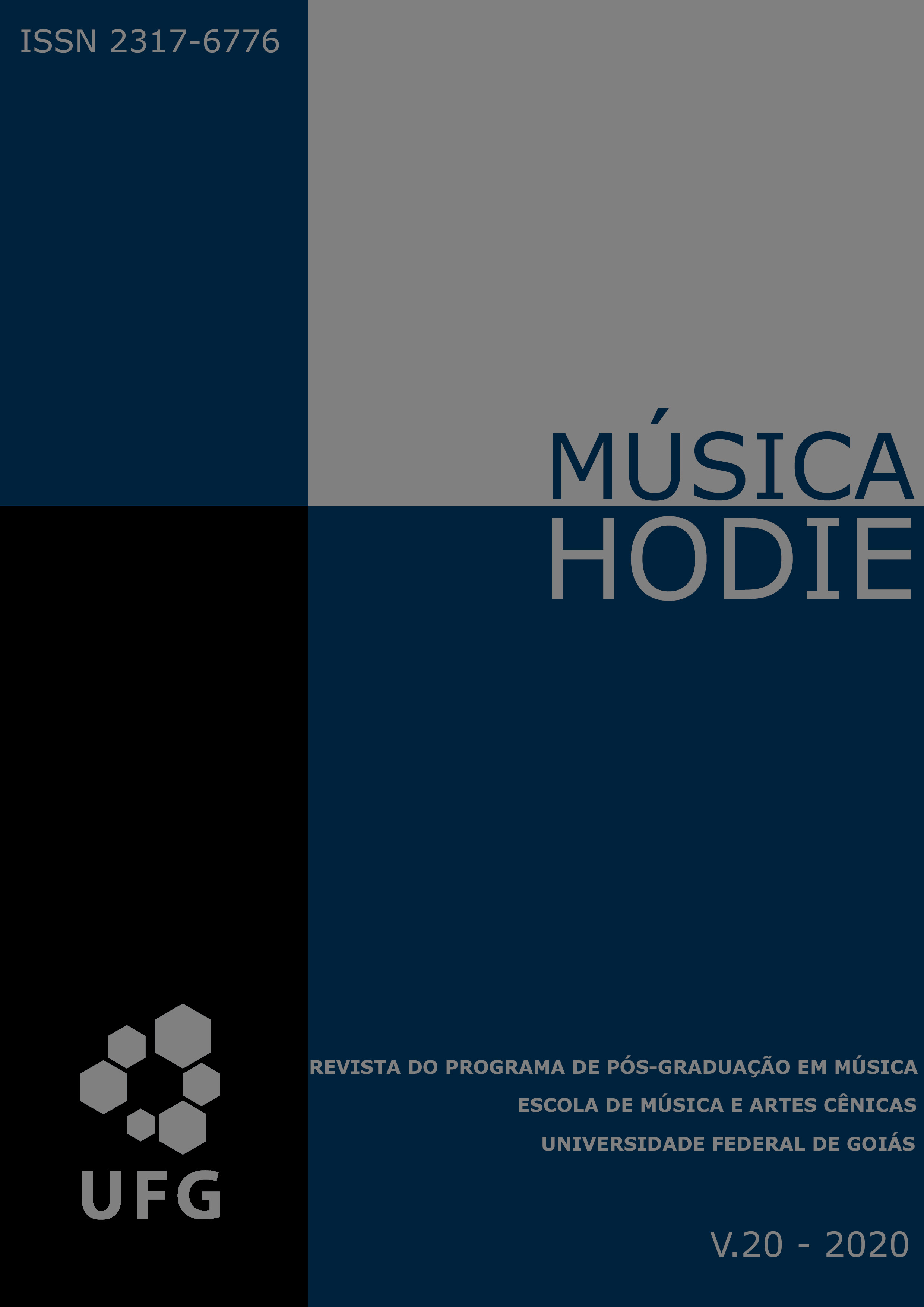The The function of analysis in J. Burmeister’s Musica Poetica
DOI:
https://doi.org/10.5216/mh.v20.63270Keywords:
Musical analysis, Musica Poetica, Joachim Burmeister, Orlando di LassoAbstract
In the last chapter of Joachim Burmeister’s treatise entitled Musica Poetica (1606), the author formulates a musical analysis of a Orlando di Lasso’s motet, with the objective of teaching beginner composers the possibilities of study of the current repertoire, putting in evidence the fundaments of the musical creative process, in order to make it accessible for imitation. This analysis is considered by contemporary musicology as one of the first initiatives of this kind, according Rivera’s (1993), Palisca’s (2001), Dunsby e Whittall’s (2011) statements, for example, and its historical and pedagogical value is widely agreed. However, its technical value, that is, its recognition as an illustration of the modes of access to the ancient repertoire is controversial, since this analysis presents answers to questions that may not make sense to the contemporary analysts or critics. In fact, it was conceived to meet the demands of musical education typical of the beginning of the 17th century and to answer questions emerging from that context. Considering that the historical distance between our present time and its past of origin is also a cultural distance, I recognize that the study of this analysis in its own terms allows us to recover concepts, ideas, techniques, processes, procedures and modes of listening and thinking hidden by the distance, so as to overcome anachronisms and contribute to the renewal of its understanding today.
Downloads
Downloads
Published
Versions
- 2021-11-14 (2)
- 2021-03-05 (1)















